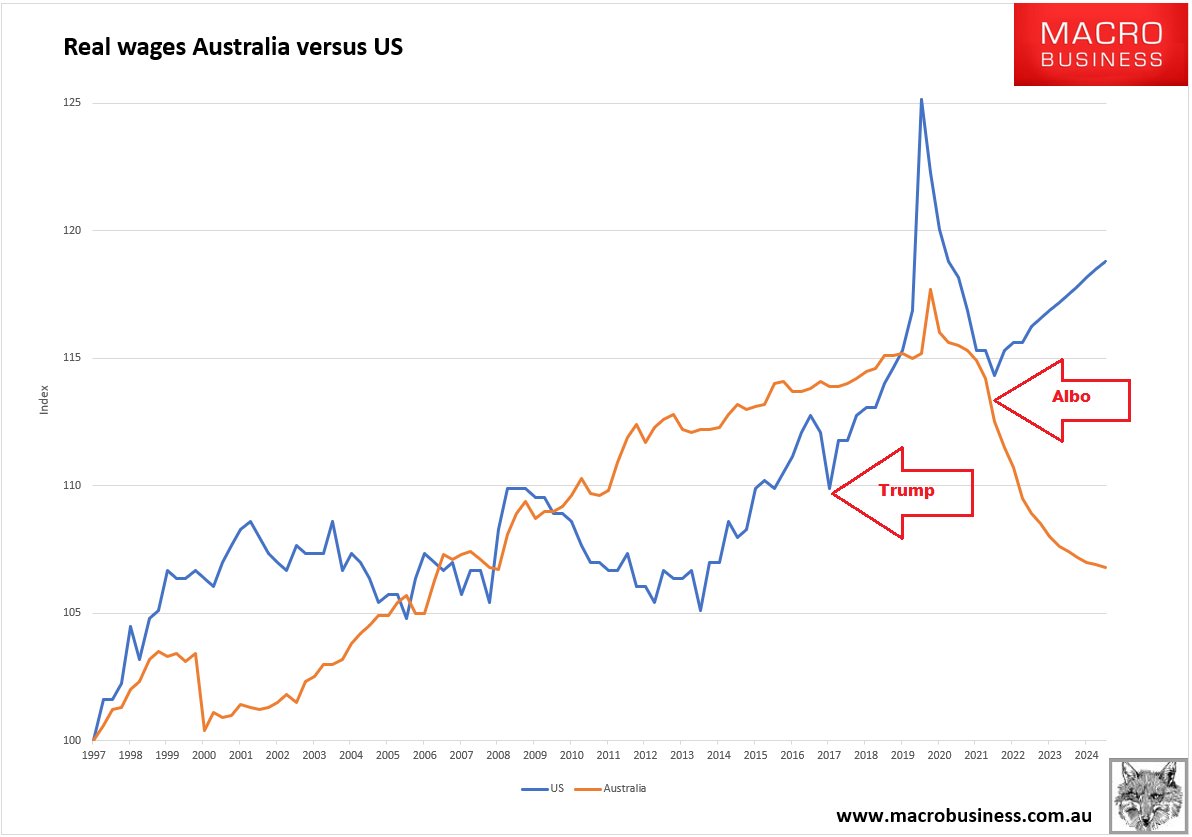Bernard Keane at the rebadged Wokey has produced an excellent piece on why the no vote for Voice has US parallels:
While there’s one key difference between the Voice to Parliament referendum and a general election — no government will change as a result of the ballot — the parallels between a win for the No campaign and the 2016 election of Donald Trump in the US are many and significant.
The No campaign relies upon, and the Trump campaign drew its strength from, white grievance and the positioning of privileged majority groups as the real victims of far less powerful, dispossessed minorities. Both rely on a conspiracy theory narrative in which progressive elites — corporate, political, media — are oppressing, robbing and taking away the rights of ordinary people, who are urged to vote in defiance of this plot.
In both cases that “elite” conspiracy theory hides that powerful and super-wealthy figures are providing extensive funding for the campaigns.
Quite right. Except for one tiny omission.
The anger in the polity that these populist movements tap into is genuine. It is natural because a globalist elite had been hollowing out the working and middle classes of both nations.
In the US, Trump rightly attached this anger to China and immigration policies, which the Democrats had roundly embraced.
The election of Donald Trump changed the direction of US foreign and economic policy. Post-Trump Democrats are now re-industrialising, delivering solid real wage growth, and using fiscal policy to repair the damage rort by forty years of globalist class warfare.
Conversely, the Albanese government is delivering the most significant shock to household living standards in modern history. Driven primarily by two globalist policy failures; maniac levels of mass immigration and complete cowardice in addressing foreign-own energy cartels.
The following chart conservatively estimates real wages through 2024:

The best interpretation for households and workers on the receiving end of this economic policy disaster is that Albo is distracted by the Voice and totally out of touch with them.
More darkly, why wouldn’t they see it as Albo cynically using Voice to distract from his destruction of their living standards?
Neither is a positive context. People can only vote for the options that are offered. And if those options do not include a class-conscious political party of the left to defend workers and households then they will express their dissatisfaction via whatever mechanism is available.
In the US, it was an obnoxious orange grenade. In Australia, it is woke policy writ large in the Voice.
Ironically, the cringe-worthy conversion of Crikey into Wokey reinforces this dynamic as it illustrates class politics taking a distant backseat to obsessive culture wars.
To be clear, I am voting a firm “yes” in the referendum. Noel Pearson is making plenty of sense:
Noel Pearson’s family was dirt poor when he was growing up on the Cape York Peninsula.
“Biggest pay cheque my father ever got, $45,” he says. “But love, food, blanket, bed, clean clothes, go to school, learn how to read, all of that, I had all of that.”
As he grew up, however, he realised the childhood he “wouldn’t trade for quids” was a world away from the experience of a growing number of Aboriginal children.
“What I increasingly got alarmed about as I grew up was the rising problem of grog amongst young men initially,” he says. “In the ’70s, the grog started to take off with the young men. Why? Free money, welfare, access to the pub, equal rights. It started to snowball with the young men. And then in the ’80s, the young women joining them. And once you get the young women joining them, it gets complicated because there’s children involved, young children.
“And the mother and the father, the grandparents, start to have to look after the young children. And then some of the older men start joining into the drinking and the whole thing snowballed. All of a sudden, some of our young people started ending up in jail. When I was a young boy, there was nobody in jail from my community.”
For Pearson, a voice to parliament is all about addressing these issues. Getting Aboriginal people off the grog, getting them working, getting children to school.
He believes the solutions to these issues can come only from people on the ground who understand the issues, not from politicians and bureaucrats who live thousands of kilometres away.
But then, I can afford to vote “yes” while fewer Australians can with each passing day under ‘Albo from the Projects’.

